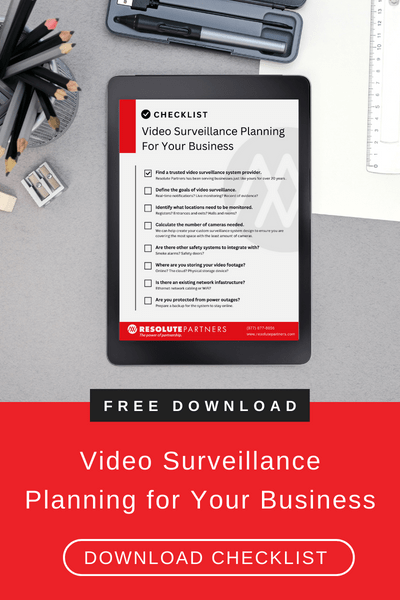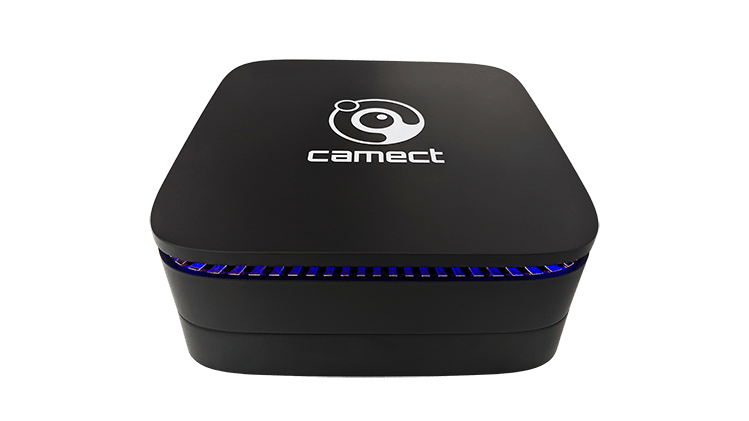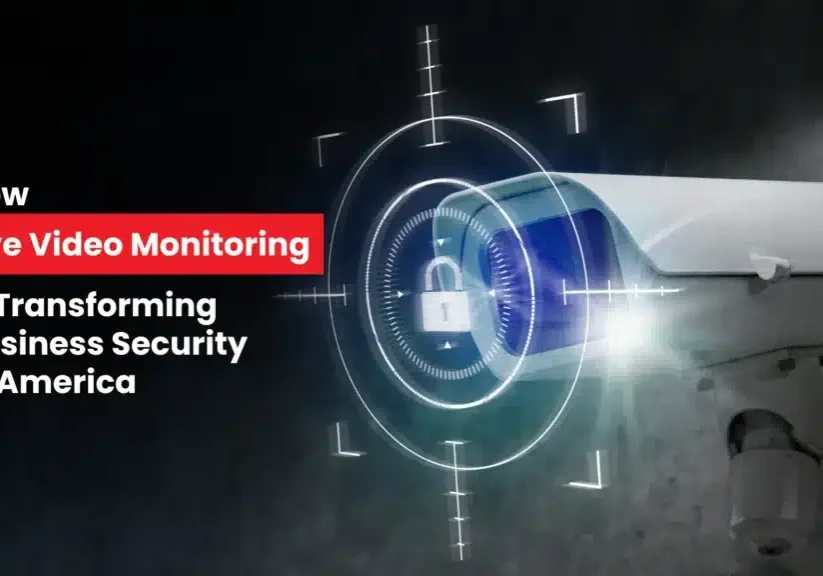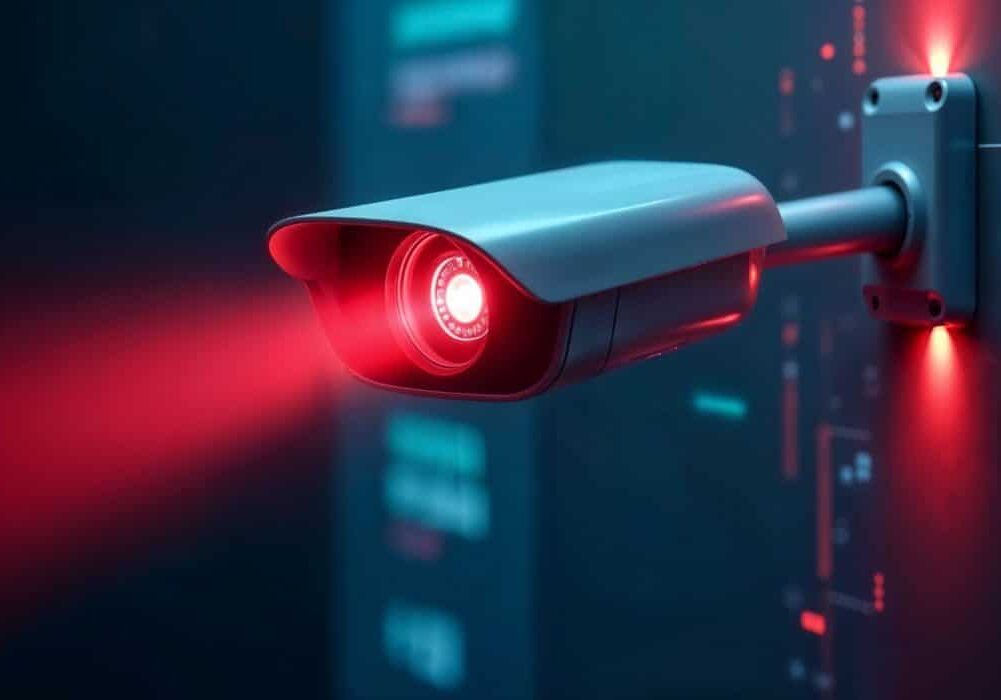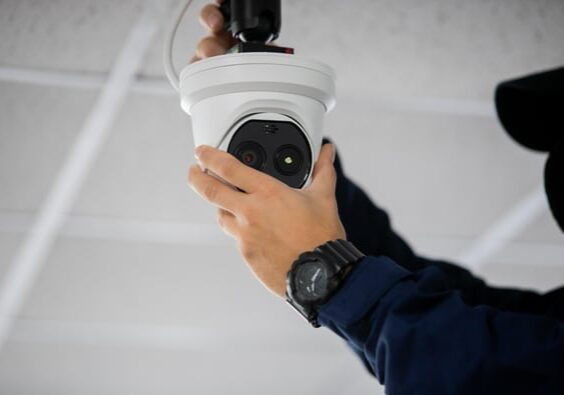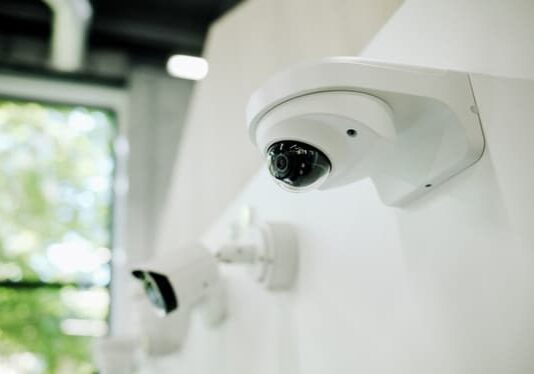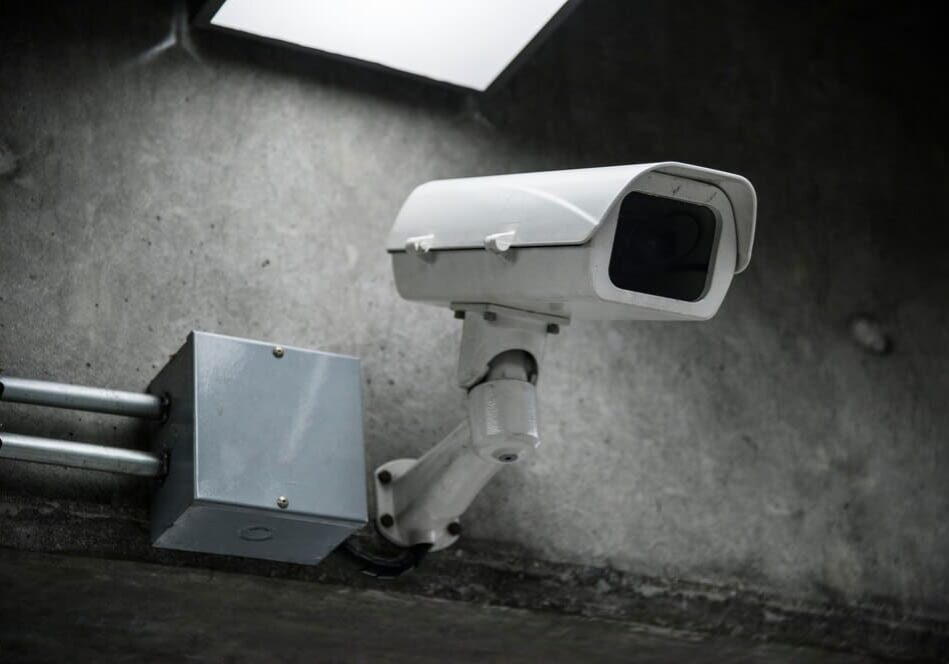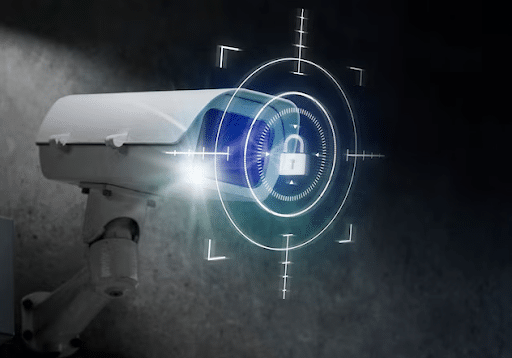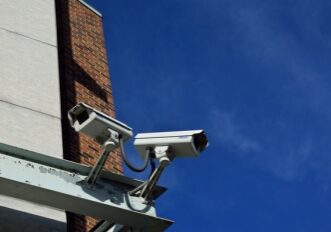Maintaining the security of our homes and businesses is a paramount concern in today’s world. But, as technological advancements have introduced sophisticated security systems, they have also brought new challenges.
One of the most concerning threats is security cameras being compromised, which can lead to unauthorized access and privacy breaches. To better protect yourself against these attacks, it is crucial to understand the various ways hackers can gain control of your security system and how to identify if your security cameras have fallen victim to hacking.
How Hackers Gain Control
Before diving into the nitty-gritty of securing your system, it’s key to grasp the ever-shifting landscape of online threats. In a world dominated by tech breakthroughs, the complexity of security systems rivals the ingenuity and determination of hackers looking to exploit weaknesses.
Let’s break down the tactics that cyber attackers use to infiltrate and gain control of your security system.
Weak Passwords: The Gateway To Intrusion
Weak passwords remain one of the primary entry points for hackers. Many users underestimate the importance of a robust password, often opting for easily guessable combinations. But hackers thrive on predictability
To safeguard your security system, make sure to protect all access points with strong, unique passwords. These passwords should include a mix of uppercase and lowercase letters, numbers, and special characters. This complexity creates a formidable barrier against brute force attacks, where hackers systematically attempt all possible combinations.
Beyond crafting robust passwords, it’s also important to regularly update your passwords. Change them periodically and avoid using the same password across multiple systems.
And if you have multiple users accessing your network, educate them about the significance of strong, varied passwords.
Firmware Vulnerabilities: Keeping Software Defenses Fortified
Firmware serves as the software that governs the functionality of devices like security cameras. However, this essential component is not immune to vulnerabilities. Cyber intruders often exploit these vulnerabilities as open doors to gain unauthorized access to your security system– causing it to be compromised.
The key to mitigating the risk associated with firmware vulnerabilities lies in the proactive and regular updating of your security system’s firmware. Manufacturers continually invest in research to identify and address potential weaknesses. Through firmware updates, they release patches and enhancements designed to fortify your system against emerging threats.
Failure to stay current with firmware updates is the same as leaving the front door to your business unlocked. Each delayed update represents an extended window of opportunity for cyber attackers to exploit known vulnerabilities.
Remote Access Backdoors
Remote access offers users the ability to surveil their premises from virtually anywhere. Yet, this convenience is a double-edged sword, presenting potential vulnerabilities that demand proactive attention.
Default usernames and passwords are the low-hanging fruit that hackers seek to exploit. Manufacturers often equip devices with standardized credentials for ease of setup, but neglecting to change these defaults provides an open invitation for unauthorized access.
To protect your virtual perimeter, begin by changing default usernames and passwords immediately upon setup. And if you don’t regularly use remote access features, take a proactive stance by disabling them. Every enabled feature represents a potential avenue for exploitation.
You should also regularly audit and monitor who holds remote access privileges within your network.
Finally, an extra layer of defense comes in the form of two-factor authentication (2FA). By requiring a secondary verification step– such as a code sent to a mobile device– 2FA significantly enhances the security of remote access.
Malware & Phishing: Guarding Against Deceptive Tactics
Malicious software, or malware, comes in various forms– viruses, ransomware, and spyware, to name a few. Meanwhile, phishing, a deceptive tactic aimed at tricking individuals into revealing sensitive information, poses a human-centric threat that can compromise the security of your entire system.
The first line of defense against malware and phishing is to avoid clicking on links or downloading files from unverified or suspicious sources. Additionally, implementing powerful antivirus and anti-malware solutions serves as a continuous shield, detecting and neutralizing potential threats before they can compromise your security system.
While technology provides defenses, human awareness is equally crucial. Educate all users within your network on recognizing and avoiding phishing attempts. Phishing attacks often target individuals through deceptive emails or messages, and a vigilant user base is your first line of defense.
Lastly, conduct regular security awareness training sessions to keep users informed about the latest phishing tactics and malware trends.
Wi-Fi Network Exploitation
A compromised Wi-Fi network provides hackers with a direct avenue to infiltrate your security system. From unauthorized access to potential data breaches, the consequences of a breached Wi-Fi network can be severe.
The first line of defense is a strong and unique password for your Wi-Fi network. If available, you can also leverage the advanced security features of WPA3 encryption. This cutting-edge protocol provides stronger encryption algorithms, making it significantly more challenging for hackers to intercept and decipher your Wi-Fi traffic.
Additionally, actively keep tabs on devices connected to your Wi-Fi network. Investigate and promptly address any unrecognized or unauthorized connections.
You can also consider network segmentation or setting up a dedicated network specifically for your security cameras. This isolation helps contain potential threats, ensuring that even if one segment is compromised, the security of other connected devices remains intact.
How to Determine If Someone Has Hacked Your Security Camera
Aside from protecting against hackers, being able to recognize the signs of a compromised system is crucial for preserving the integrity of your security in the event of a breach. These are some subtle clues and unmistakable red flags indicating that your security camera has been compromised.
Unusual Camera Behavior: Identifying Anomalies
The first sign of a compromised security camera is often unusual behavior. If you notice your camera pans, tilts, or zooms without user input, it may be under external control.
It is beneficial to regularly review recorded footage. That way, you can catch any unexpected movements or activities that were not triggered by authorized users on your network.
Suspicious Network Activity
Keep a vigilant eye on your network activity logs. Sudden spikes in data usage or connections to unfamiliar IP addresses may indicate a security breach.
Regularly audit the devices connected to your network to identify any unrecognized or unauthorized users.
Strange Or Unauthorized Notifications
Security cameras are designed to alert you to potential threats. But receiving notifications for unconfigured activities, such as motion detection in inactive areas or unexpected camera shutdowns, signals a red flag.
Investigate these notifications as promptly as possible to rule out the possibility of your system being compromised.
Safeguarding Your Digital Watchdogs
The security of your security system is a critical aspect of overall safety. Understanding how hackers can gain control and recognizing the signs of breaches allows you to take proactive measures to fortify your defenses.
By staying vigilant and implementing best practices, you can ensure that your security cameras do not become compromised.
Frequently Asked Questions
You may notice signs such as your security cameras behaving unusually—for example, panning, tilting, or zooming on their own. Unexpected alerts, like motion detection in inactive areas, may also occur. A sudden increase in data usage or connection to unfamiliar IP addresses can be a red flag. Another sign could be the system performing slowly or inconsistently, which may indicate unauthorized access.
Hackers can access your system by taking advantage of weak passwords, outdated firmware, or unsecured remote access features. If your system is not regularly maintained with updates and strong authentication, it becomes vulnerable to exploitation.
To protect your system, create strong and unique passwords, regularly update the firmware to close any security gaps, and secure remote access with proper login protection. It’s also important to monitor your network for unfamiliar activity or connected devices that shouldn’t be there.
Keeping your firmware updated is crucial because updates often contain security patches for known vulnerabilities. Without these updates, your system could be easily exploited by cyber attackers who target systems with outdated software.
If you believe your system has been breached, immediately change all associated passwords and disconnect the system from the network to prevent further intrusion. Contact your security provider or a cybersecurity expert to help assess the situation. Additionally, check your system logs and camera footage for any suspicious activity.

Michael S. Blanco is the Chief Executive Officer and Co-Founder of Resolute Partners, LLC, where he leads strategic initiatives across various divisions. After owning family entertainment centers in New England, he co-founded Resolute Partners in 1996, launching the first Internet cafés for the U.S. Navy and partnering with AT&T for global deployment. A pioneer in wireless communications, Michael has expanded the company’s focus to include Energy Management/IoT, Cybersecurity, and Managed Video Security. He holds a degree from the Rochester Institute of Technology.
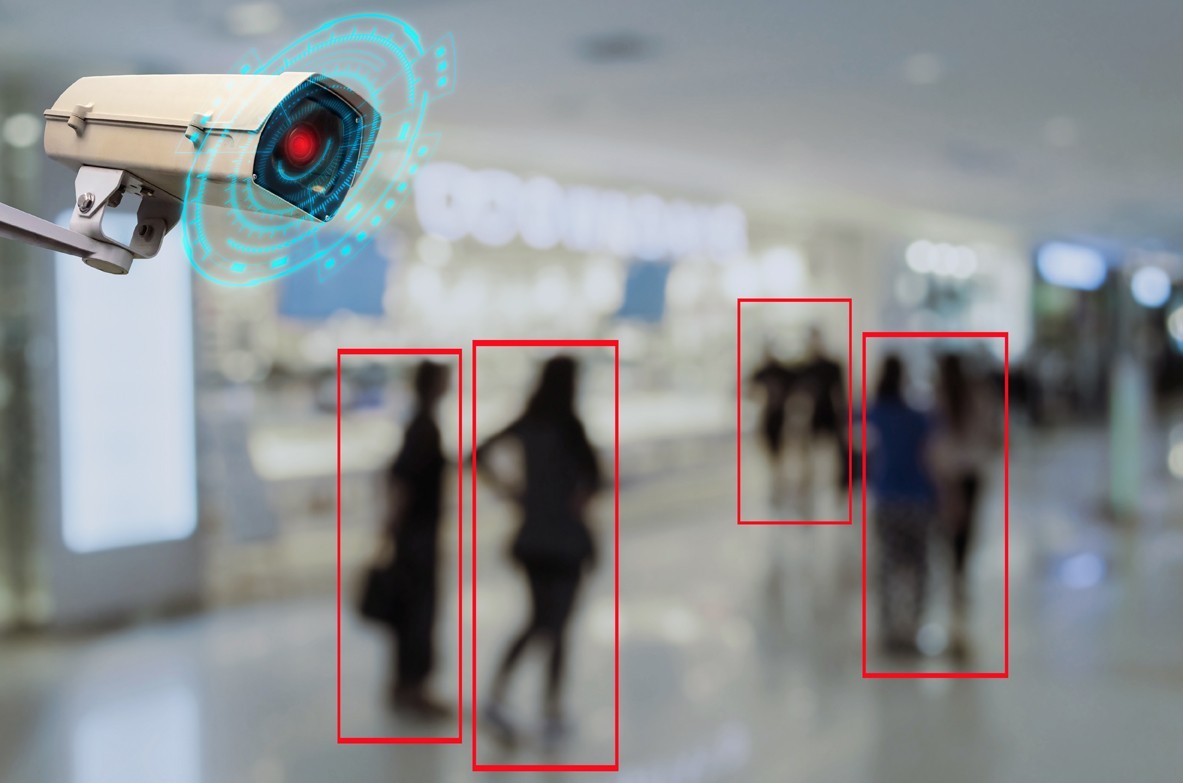
Stay up to date.
Subscribe for latest news, protection tips, special offers, and more!




